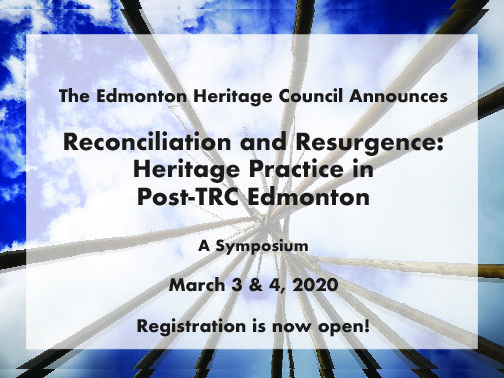Keynote 2:
Presented by Judy Half as part of the symposium Reconciliation & Resurgence: Heritage Practice in Post-TRC Edmonton
This presentation will address cultural inclusion in heritage resource management, including museums and the archaeological departments of universities. Historically, these entities were built by the province and the federal government; they are supported by university learning, which has promoted the 1980 repatriation relationship with the Blackfoot communities while leaving out other Treaty communities to participate in the development of western Canada’s cultural fabric. Topics will include the exclusion of many Treaty Six and Eight and other Indigenous groups on levels social, cultural, heritage, economic, and political, which is an extension of the Indian policies used to define First Nations identity and relationships to the landscape. Half will discuss a cultural genocide that continues to be applied to many Treaty Six and Eight groups, only because of the age-old colonial argument that the Cree migrated with the fur trade in 1700.
In addition, this approach challenges western and cultural hegemony about First Nation histories in Alberta; therefore, First Nations histories should be the focal point of reconciliation. Many Treaty Six communities have experienced cultural genocide, particularly in identity and culture, which have been subject to colonial undertones about how the west was won. A part of reconciliation is to address this and to replace colonial history and hegemony about Treaty Six people not with imperial anthropology or archaeology but with Indigenous scholarly approaches.
Register now:
